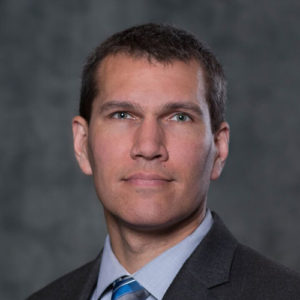Kevin Rose, Rensselaer Polytechnic Institute – What We Don’t Know About Climate Change
 There’s still much to learn about climate change.
There’s still much to learn about climate change.
Kevin Rose, assistant professor of biological sciences at Rensselaer Polytechnic Institute, looks into how organic matter can keep temperatures on the rise.
Dr. Kevin Rose received his Ph.D. in Ecology, Evolution, and Environmental Biology from Miami University studying the causes and consequences of variation in ultraviolet radiation in aquatic ecosystems. Following his Ph.D., Dr. Rose went on to a postdoctoral fellowship at the Smithsonian Environmental Research Center, an AAAS Science and Technology Policy Fellowship at the U.S. National Science Foundation, and a postdoctoral appointment at the University of Wisconsin-Madison. Dr. Rose joined at the Department of Biological Sciences at Rensselaer Polytechnic Institute in 2015 as the Frederic R. Kolleck ’52 Career Development Chair in Freshwater Ecology. Dr. Rose’s research spans aquatic ecology and biogeochemistry to understand how natural and anthropogenic processes affect the structure and function of freshwater ecosystems. A goal of his lab group is to forecast the future state of lake ecosystems in a regional to global context, with an emphasis on understanding how freshwater ecosystems are changing in response to local to global changes in land use and climate. This interdisciplinary research draws on skills in biology, ecology, biogeochemistry, advanced environmental sensors, and computational modeling.
What We Don’t Know About Climate Change
Many people know that planting a tree is a great way to fight climate change. Trees and other plants pull carbon dioxide out of the atmosphere and turn it into living organic matter. But when leaves and branches fall to the ground, where does all that organic matter end up? Some of it gets washed into streams, rivers, lakes, and ponds, where dissolved organic carbon gives water a brownish hue, just as tea leaves do when dipped in a mug of hot water.
Eventually, most of the carbon entering aquatic ecosystems breaks down, often by bacteria and the sun’s ultraviolet rays. Aquatic ecosystems act like chimneys, venting CO2 from the landscape back to the atmosphere. Lakes and rivers also act as the circulatory system for carbon on our planet, regulating the flow of carbon around the continents and to the oceans.
So, what will happen to this circulatory system as temperatures climb? Data and theory tell us more CO2 is emitted when water warms. This has the potential to trigger a feedback loop in which increased warming leads to greater CO2 release, higher atmospheric CO2, and thus further warming.
Will this positive feedback cycle be important enough to alter carbon cycling in aquatic ecosystems or the Earth’s climate? Ecologists are trying to figure this out. With support from the National Science Foundation, we are using data and computer models to simulate how thousands of lake temperatures and carbon processes are responding to climate change. Our early findings indicate that how lakes respond to climate change depends on both future air temperatures, as well as characteristics of individual lakes, like how deep or clear they are.
Our lakes and rivers will probably look quite different in 50 to 100 years. But we can do something about it. We can all do our part to protect our planet – it can be as simple as planting a tree.



By reflecting away 30% of the incoming solar energy the atmosphere/albedo makes the earth cooler than it would be without the atmosphere much like that reflective panel behind a car’s windshield.
https://www.linkedin.com/feed/update/urn:li:activity:6503085690262216704
Greenhouse theory has it wrong.
The non-radiative processes of a contiguous participating media, i.e. atmospheric molecules, render ideal black body LWIR from the surface impossible. The 396 W/m^2 upwelling from the surface is a “what if” theoretical calculation without physical reality. (And, no, it is not measured!) (TFK_bams09)
https://www.linkedin.com/feed/update/urn:li:activity:6507990128915464192
https://principia-scientific.org/debunking-the-greenhouse-gas-theory-with-a-boiling-water-pot/
Greenhouse theory has it wrong.
Without the 396 W/m^2 upwelling there is no 333 W/m^2 GHG energy up/down/”back” loop to “warm” the earth. (TFK_bams09)
https://www.linkedin.com/feed/update/urn:li:activity:6457980707988922368
Greenhouse theory has it wrong.
These three points are what matter, all the rest is irrelevant noise.
No greenhouse effect, no CO2 global warming and climate change neither caused nor cured by man.
If the earth is actually hotter without an atmosphere radiative greenhouse effect goes straight onto the historical trash bin of failed theories and all the handwavium, pseudo-science, horse manure pretending to explain it follows close behind.
Nick Schroeder, BSME CU ’78, CO PE 22774